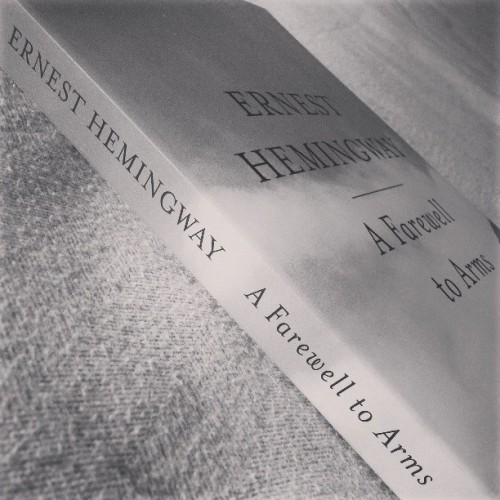#hemingway
Good rum, especially the dark version.

Ernest Hemingway, cerca del final de su vida, observa la pacífica existencia de uno de sus gatos. Los admiraba por su tranquila pero siempre atenta e inquisitiva manera de observar la realidad.
“Somos más fuertes en los lugares en los que nos hemos roto”.

#wip A quick rough up of a #pointillist #skull with #Hemingway quote #forwhomthebelltollsittollsforthee
Post link
You’re dry and you’re empty and there’s nothing else. There’s nothing else, I tell you. Not a damned thing // Ernest Hemingway.
Post link
The people who urge us to eliminate adverbs often also speak admiringly of the work of Ernest Hemingway, as the apotheosis of bold direct writing. Indeed the Hemingway Editor app, which is supposed to improve your writing by making it more bold and direct, advertises that it ‘helpfully’ [sic] highlights adverbs ('these verbal atrocities’), encourages you to keep them down to a small number and congratulates you on doing so.
But Hemingway used adverbs. Of course he did. Right here in the third sentence of The Old Man and The Sea, for example.
But after forty days without a fish the boy’s parents had told him that the old man was now
definitelyandfinallysalao, which is the worst form of unlucky[…]
Despite the name, adverbs don’t just modify verbs, they can modify adjectives too (and serve to link sentences, or as a comment on the text, but that’s another matter). Hemingway does that here, reinforcing salao with a fitting, for him, double punch of adverbs.
I cannot like his writing (sorry, Hemingway fans) but I don’t like to see it misrepresented, so let’s add Ernest Hemingway to the list of writers who knew how to use an adverb when they had to.




